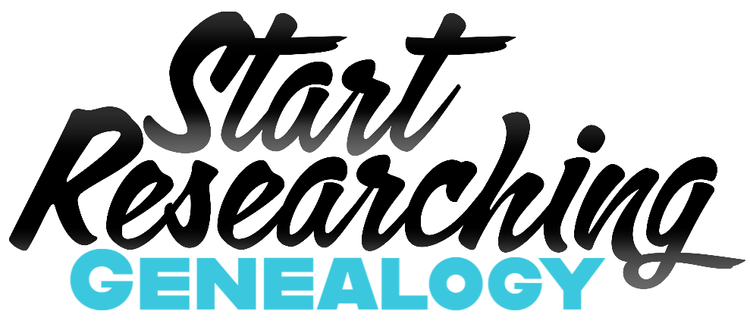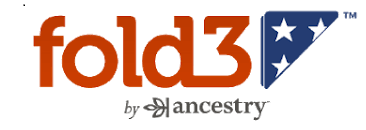A genealogy database is a repository of records with online access, either through a paid subscription model in which you pay a monthly or annual fee, a free access with account registration, or a combination of a limited free version with pay to upgrade features. Many paid sites will offer a limited trial as well, or free access through libraries or other sites.
A few popular database sites include:
With the following, I offer my personal opinions and tips for my favorite database sites through my years of research experience. I am not affiliated with any of these companies, and not compensated for my views or links. All names, images, and trademarks and copyrights found anywhere on this site are property of their respective companies. Now let’s get into it!
Ancestry.com
Perhaps the most well known and popular of all the genealogy databases, Ancestry.com is a great place for the average researcher. You can create multiple family trees, connect and share with other users, and easily search from a huge collection of records. They are constantly adding sources, and have a lot of cool features.
However, it is almost too easy to save records and hints to your tree without verifying sources or confirming the record belongs to your ancestor. Many users on the site are guilty of this, and it creates a lot of misinformation on the site.
For example, perhaps you find a record that looks promising, say a birth record for your ancestor that has the same name, and so you save it to that ancestor’s profile. Later you discover a birth record for this individual that has the correct parent’s names and a different date of birth, and you believe this new record to be true. Even if you remember to go back and delete the incorrect record you saved by mistake, how many people on the site copied this record to their tree already? Many people keep their family trees private for this reason (and others), but I say it’s better to share and be aware! Do not blindly accept hints or records without examining them for authenticity and sources! And if you can, always try to find the primary, original source.
When searching for records, I recommend utilizing the card catalogs to discover collections that may have records of your ancestor, in addition to broad record searches from your ancestor’s profile page.
It’s also easy to cancel your subscription and pick it up again later when you have more time to research or want to save money for a few months, but be aware that you may not have access to files you saved to your Family Tree. You can login and view it, but you won’t be able to access your own research unless you keep the subscription active. Always back up the records you discover to your own devices (on your computer, printed out, online or some combination of these) so that you may access them at any time.
FamilySearch.org
FamilySearch.org is a free resource (account registration required) and nonprofit organization sponsored by The Church of Jesus Christ of Latter-day Saints, also known as the LDS church or the Mormons. The website was created in 1999, and is one of the most used genealogy websites online today.
While you can create a family tree (or rather, contribute to their single, worldwide family tree) and store information on the site, it is not necessary to search their immense collection of records. As soon as you create an account you are added to their family tree, which anyone can edit.
Some of the records in the database are only available to members of the church, but may be viewed by anyone visiting their local Family History Center or an affiliate library. These records will have a key over a camera icon to indicate they are locked. It is my understanding these restrictions are from other countries. I’ve visited a local FHC a few times, and in my experiences they were very helpful and friendly.
Note that they no longer ship microfilms to their local Family History Centers (as of 2017) due to most of their records now having digital copies easily accessible. If a record cannot be viewed online, or at a local Family History Center, it may still be viewable at the main Family History Library in Salt Lake City, Utah.
Other records may not have images available, but tell you the name of the source which you can further research. They may be records that FamilySearch does not have the rights to show you, like vital records that must be purchased elsewhere.
When looking for records on FamilySearch, you’ll get better results if you utilize their card catalog to narrow down your search to a specific collection. Under search, navigate to card catalog, and then enter a location. Restrict results to online availability, then choose a collection to search.
Fold3.com
Fold3.com was aquired by Ancestry.com in 2010 when the company purchased iArchives and Footnote.com, re-branding under the name Fold3 in 2011 to become a well-known source for military records. The name itself has to do with the folding of the flag during ceremonies, “in which the third fold is made in honor and remembrance of veterans who served in defense of their country and to maintain peace throughout the world” (fold3.com).
The site requires a separate subscription, even if you already have Ancestry.com. During certain times of year (Memorial Day, Independence Day, etc) they offer free access to certain collections, so it’s worth it to sign up for their newsletters to be notified. There are also a some collections that are always free to search, including:
Their records come from many different sources, including The National Archives, the Social Security Administration, U.S. Department of Veterans Affair, The National Archives of the UK, and FamilySearch, as well as many state and county archives, libraries, and other groups.
You can navigate to and search specific collections, or conduct a main search with many filter options that make it very easy to find what you need. In addition to record searches, they also have memorial walls in which you can create or edit profiles for veterans.
NEHGS’s AmericanAncestors.org
The New England Historic Genealogical Society (NEHGS) is a nonprofit, established in 1845 to promote the study of family history. They are “America’s founding genealogical organization and the most trusted name in family history research” (americanancestors.org), the oldest and largest such society in the U.S. The website AmericanAncestors.org is part of the American Ancestors public front of NEHGS.
Membership at NEHGS, available at various levels, includes access to the NEHGS library in Boston, and the AmericanAncestors.org database, as well as a multitude of other benefits like discounts on publications and research services. They also have a free “Ask a Genealogist” service that can be quite helpful. Members also receive the quarterly publication of The New England Historical and Genealogical Register and the magazine American Ancestors. The site also offers American AncesTREES, an online family tree program free for guests and members, with higher level members having access to advanced features.
If you are researching early New England or colonial records, the AmericanAncestors.org collections will be a very valuable resource. Their Great Migration Study Project documented immigrants to New England from 1620 to 1640, with many publications and searchable databases. They also have a large collection of U.S. Catholic records and Jewish records, and the NEHGS Jewish Heritage Center. Members also have access to search many scholarly journals and magazines, and many other searchable databases.
You can browse the database list or catalogs and search (or browse) a specific collection, or search all databases at once. Registered guests can browse several free databases.
Newspapers.com
There are other sites that offer historical newspaper searches (see Newspaper Records) but I’ve had the most successful results using this paid database. Like Fold3.com, this site is also owned by Ancestry.com but requires a separate subscription. They do have occasional free weekends, as well as a free 7 day trial.
When you are signed in as a registered guest you still have access to all your past clippings, which you keep whether you have an active subscription or not. You can easily download these newspaper clippings as PDF files, or send them to your Ancestry account, among other things.
See also Software and Search Methods







